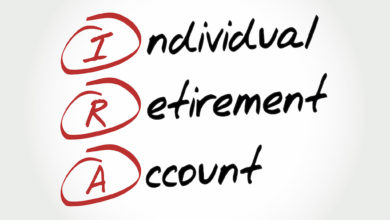The Homeowner’s Insurance That’s Right for You
Make Sure You Have the Proper Protection Within Your Budget

When it comes to buying homeowner’s insurance, you will find that there is a gulf of difference between coverages available from one company to the next and, in many cases, one policy to the next. With so many variations, it can be difficult to determine which insurance policy is the best one to meet your needs.
Unfortunately, many homeowners make the mistake of placing cost as the most prominent priority when choosing insurance, often with a resulting shortfall of coverage or exorbitant deductibles. The right insurance policy must undoubtedly work within your budget, but must also serve your needs and provide proper protection to you as the homeowner.
Coverage Requirements
When it comes to homeowner’s insurance protection, there are some types of coverage that are essential. These types of coverage provide critical financial security for your family if a covered event results in a devastating loss. The following types of coverage are among the most vital for homeowners today.
- Dwelling Coverage – Covers your home and things attached to it (such as attached garages, utility rooms, etc.)
- Liability Protection – Offers protection if someone gets injured on or by your property or if someone’s property gets damaged by your property. Liability coverage also provides for your legal defense up to the coverage limits.
- Loss of Use Protection – If your home is unlivable while repairs are made in the aftermath of a covered event, loss of use will pay expenses above and beyond normal living expenses related to securing alternative sleeping arrangements like a hotel or rental unit while repairs occur.
- Medical Payments Protection – Covers medical expenses related to guest injuries on your property when a lawsuit is not involved.
- Other Structures Coverage – Protects detached structures on your property such as shops, storage sheds, utility buildings, fencing, barns (not used for business), and detached garages.
- Personal Property Coverage – Invaluable coverage that helps you replace lost items in the aftermath of a covered event.
While these are the essentials you will need for protection, there are other types of coverage you may need as well. For instance, flood insurance is a wise investment for all homeowners and is required by most mortgage companies for homes located in areas that are at risk of flooding.
You might also want to consider endorsements, or additional protection, for high-value items you own that may not be properly valued under standard personal property coverage. These include items such as:
- Antiques
- Art
- Collectibles
- Electronics (televisions, stereo equipment, computers, or other high-end items.)
- Furs
Essentially, any item that is high value might warrant additional protection.
Finally, the society we live in is one that has become highly litigious. Umbrella insurance protection provides additional liability coverage if liability claims against you exceed the limits of the liability protection in your homeowner’s policy.
What Isn’t Covered
There are limits to what most homeowner’s insurance policies protect. Among the fundamental limits are things like flood and earthquake insurance, which both require specific endorsements to receive. Nuclear accidents and acts of war are also explicitly excluded in most insurance policies as are issues related to mold, termite damage, pipes bursting, and other maintenance or neglect issues.
Your pet and damage they inflict are often excluded from coverage, especially if you have a dog listed as an aggressive breed.
Deductibles
Deductibles are essential for determining your risk when covered events occur. Insurance companies prefer that you choose higher deductibles as that encourages you to take more significant preventative measures to protect your home and personal property. Increasing your deductible, or your burden if a fire or theft occurs, can reduce your premiums. Just make sure that before you take the plunge, the monthly savings are worth the added risk to you as the homeowner, and that the increased deductible will not be one that is crippling to you.
Rate Determinants
Many variables go into determining your homeowner’s insurance rates, some expected and some unexpected. The more you know about what insurance companies consider when determining your premiums, the better able you will be to mitigate them – and reduce your costs.
- Age of Home
- Amount of Coverage
- Credit Score
- Deductible
- History of Claims
- Home Construction (brick, for instance, provides more protection against fire than wooden homes).
- Location of the Home (crime rates, proximity to fire services, and susceptibility to certain natural disasters like floods or wildfires can have an impact on your premiums)
- Risk Factors (swimming pools, aggressive dogs, trampolines, treehouses, and other irregular items.)
Choosing the right homeowner’s insurance can be a complicated process. Working with a trusted insurance agency can help you select the policy that best meets your needs without breaking the bank.





